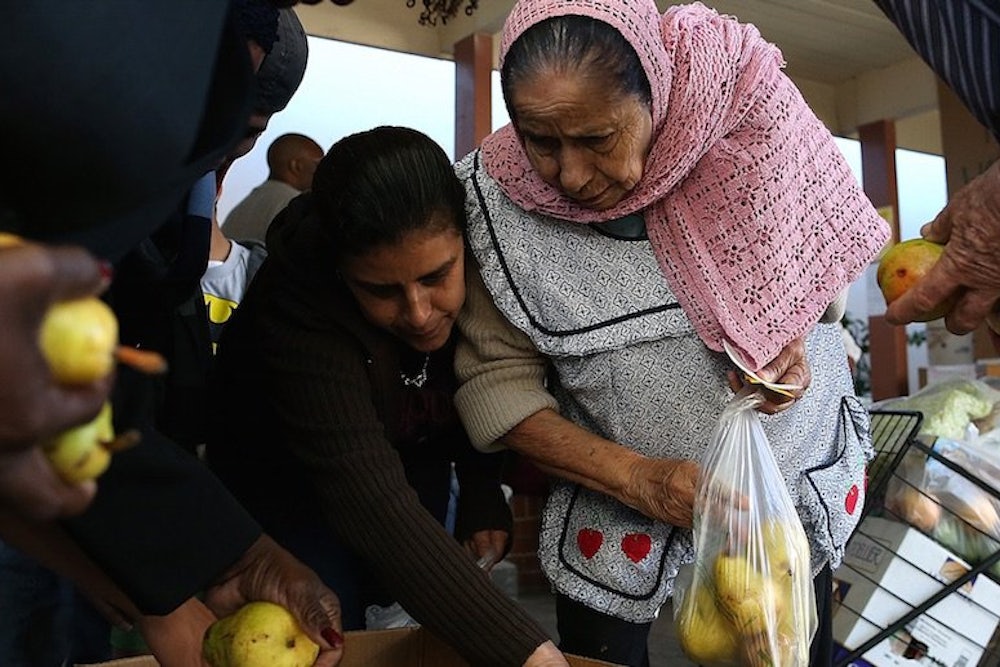In Texas, State Senate Republicans are finally making headway in an effort they have been pushing since 2013: making drug testing mandatory for people on welfare. If these enterprising Republicans succeed, they will join a rash of conservative lawmakers who have recently mandated similar requirements. As Tennessee has already discovered, very few welfare recipients test positive for drugs—just 37 of 16,107 Tennessee recipients did in the second half of 2014, or a mere .2 percent. Nevertheless, Texas legislators are preparing to push through another set of useless laws based on the logic that, as state Senator Jane Nelson put it, "Taxpayer dollars should not be used to support a person's drug habit. We need to ensure this program is putting individuals on a true path to self-sufficiency, and drugs are a barrier to independence."
Nelson’s articulation is a distilled version of the bizarre reasoning that permeates our national understanding of welfare. By restricting welfare access, legislators reason, would-be recipients will be forced to put taxpayer dollars only toward the virtuous cause of self-sufficiency, whereas looser regulations would allow them to wallow in welfare dependence. Thus we wring our hands over semi-mythological welfare-for-weed scenarios and angst over what people should and should not be able to purchase with SNAP. After all, we wouldn’t want welfare users to have it so easy they choose to rely on government payouts rather than market income, right?
But that reasoning isn’t evenly applied. Society is rife with examples of government transfers that, by nature of going to financially secure people instead of financially insecure people, are not tagged with the same stigma as transfers labeled welfare. Consider public schools: if the state did not sponsor public schools, parents who wanted educated children would either have to incur the costs of homeschooling or pay for private schooling, which would surely spur them to greater self-sufficiency. Instead, some 35 million children attend public elementary schools nationwide, with annual increases in enrollment projected through 2021. Our taxes also support services for veterans and elderly people, including social security. And yes, social security is an entitlement program by another name: “We don't call Social Security ‘welfare’ because it's a pejorative term,” Washington Post columnist Robert J. Samuelson writes.
We can surmise that, absent veterans’ services and social security, former United States service people and the elderly would have to find some other way to support themselves, which again would surely spur them to industriousness. But we have collectively decided that people who have served the country in a particular way and people who are of a particular age shouldn’t be required to be self-sufficient. Neither, it seems, do we believe the parents of young children should be saddled with the full burden of their education. From students of public universities to recipients of agricultural subsidies to those who rely on policing and public health, the list of people we are willing to cut a break is so broad as to exclude virtually no one but the poor.
Thus the champions of small, limited government repeatedly attempt to meddle in the lives of poor people, and fruitlessly: experts have demonstrated over and over again that there is no benefit to testing welfare recipients for drug abuse (and there certainly is a taxpayer cost). Drug testing is strictly a punitive measure, a tax on the poor levied as a penalty for their poverty. For the rest of us who are, in fact, on multiple forms of welfare, there is no such intervention.
